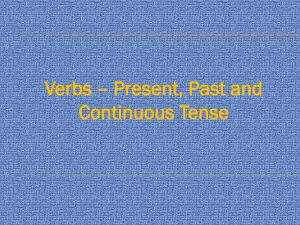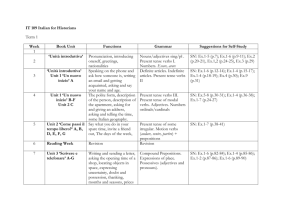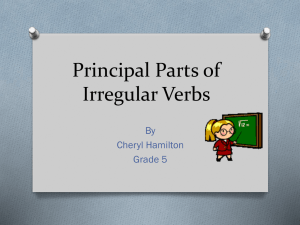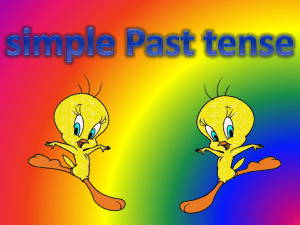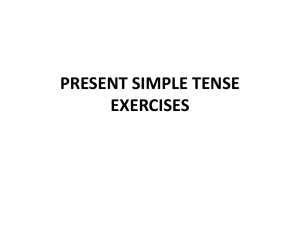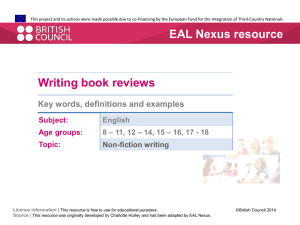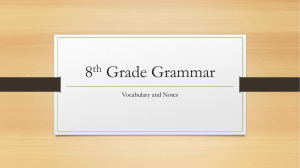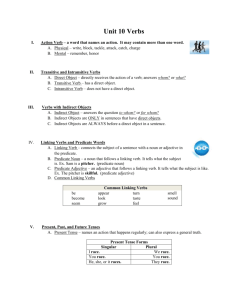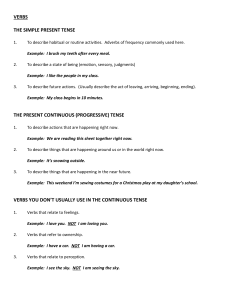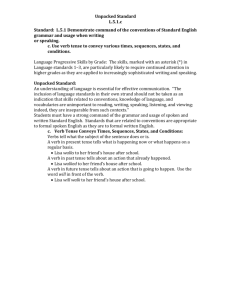Integrated Task L 1.1e
advertisement
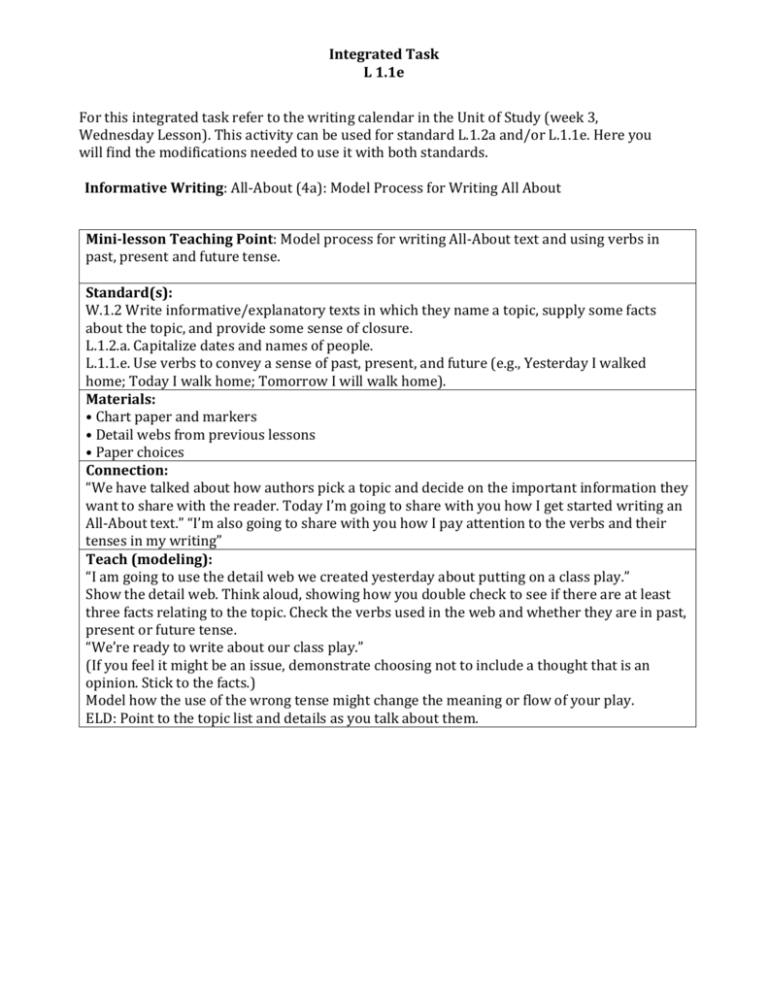
Integrated Task L 1.1e For this integrated task refer to the writing calendar in the Unit of Study (week 3, Wednesday Lesson). This activity can be used for standard L.1.2a and/or L.1.1e. Here you will find the modifications needed to use it with both standards. Informative Writing: All-About (4a): Model Process for Writing All About Mini-lesson Teaching Point: Model process for writing All-About text and using verbs in past, present and future tense. Standard(s): W.1.2 Write informative/explanatory texts in which they name a topic, supply some facts about the topic, and provide some sense of closure. L.1.2.a. Capitalize dates and names of people. L.1.1.e. Use verbs to convey a sense of past, present, and future (e.g., Yesterday I walked home; Today I walk home; Tomorrow I will walk home). Materials: • Chart paper and markers • Detail webs from previous lessons • Paper choices Connection: “We have talked about how authors pick a topic and decide on the important information they want to share with the reader. Today I’m going to share with you how I get started writing an All-About text.” “I’m also going to share with you how I pay attention to the verbs and their tenses in my writing” Teach (modeling): “I am going to use the detail web we created yesterday about putting on a class play.” Show the detail web. Think aloud, showing how you double check to see if there are at least three facts relating to the topic. Check the verbs used in the web and whether they are in past, present or future tense. “We’re ready to write about our class play.” (If you feel it might be an issue, demonstrate choosing not to include a thought that is an opinion. Stick to the facts.) Model how the use of the wrong tense might change the meaning or flow of your play. ELD: Point to the topic list and details as you talk about them. Integrated Task L 1.1e Active Engagement (guided practice): Model Writing title (i.e. Class Play) and the author’s name on the top of the paper you have chosen for your All-About piece. “I want to make sure that I capitalize the first letter of each word in the title. I also want to make sure I capitalize only the first letter in my name.” Have students choose a detail from the detail web. Then have students turn and talk with a partner about what you could write about that detail. Choose one statement and model writing it as part of the All-About text you are writing. Highlight the verb tense on your writing and why you choose to write in that tense. Pay attention to whether students are able to stay on topic and use facts rather than opinions. Reteach as necessary. Ask students whether their statement will include verbs in the past, present or future tense. Bridge to Independent Practice: “As you go off to write today, make sure you have enough details on your web. Then you may begin writing your All-About piece like I did today. Make sure your verb tenses make sense with the way you want your play to flow or take place.” Conferring: By this time students should have chosen a topic and be working on All-About writing. Encourage and support as appropriate for each student. Double check with students that they have written the title and author’s name on the top of their piece. Ask students to point out a verb in their writing and determine its tense. Closure: Select a few samples that show a strong start and share them with the group. Students should know that all sentences must have a verb. A verb shows the action or being of a noun. Students should be able to use the correct tense of verbs when communicating through writing or speaking. Types of verbs: Action Verbs – show an action that a noun can do (e.g., run, walk, sing, sit, ride, talk, play) Being Verbs – do not express an action. They tell us more about what the noun is (e.g., am, is, are, was, were, be, being, been). Present Tense – is happening in the present (e.g., We play in the rain. We are running through puddles). Past Tense – happened in the past (e.g., We played in the rain. We ran through puddles). Future Tense – will take place in the future (e.g., We will play in the rain. We will run through the puddles).
